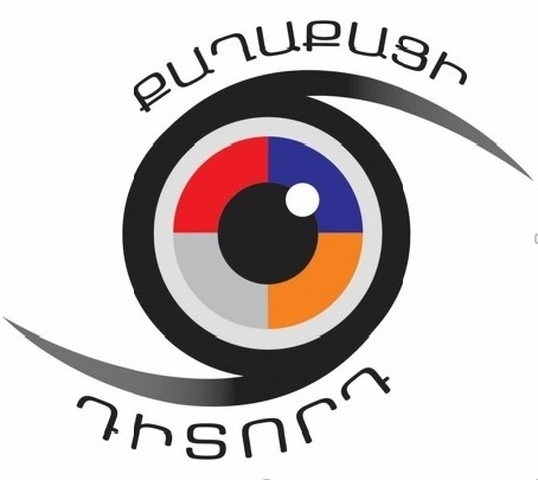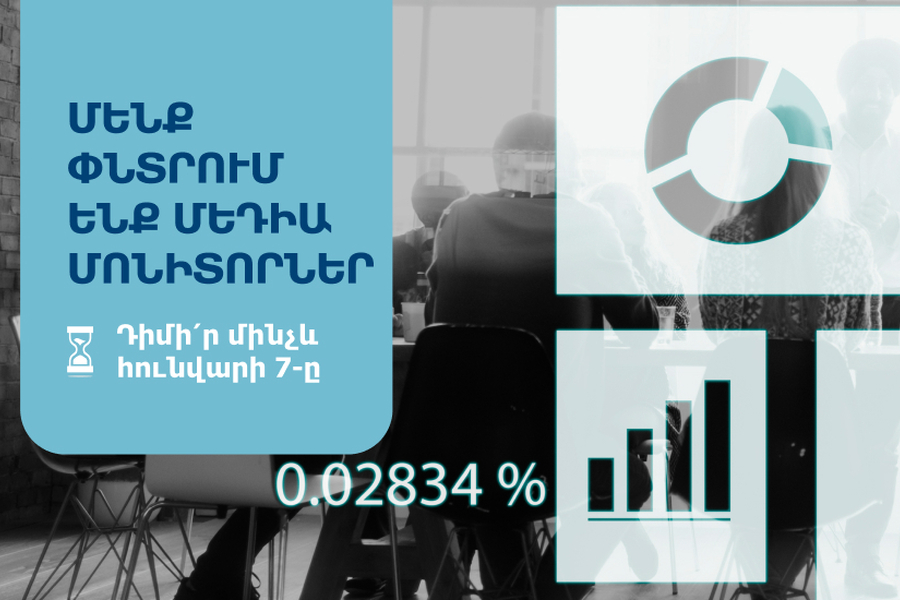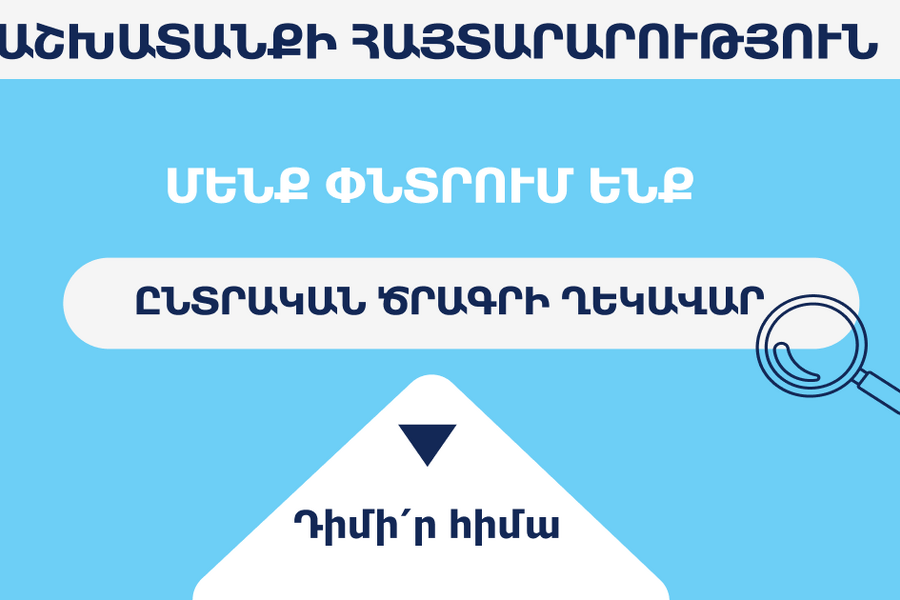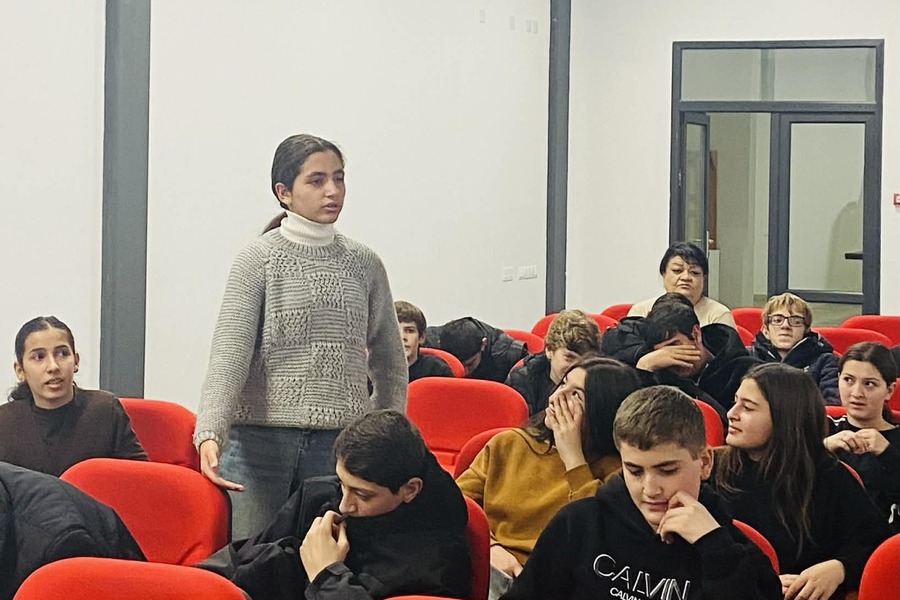Statement on local observers and mass media representatives’ activity limitations in Draft Electoral Code of Armenia
On March 3, 2016, the government of Armenia approved and submitted to the National Assembly the Draft Electoral Code, developed in contradiction to the principles of democracy, through non-inclusive processes and in breach of the requirements of RA Law on Legal Acts.
In addition to a number of other concerns, the draft not only failed to consider the recommendations made by OSCE/ODIHR Election Observation Missions after 2012 Parliamentary Elections, 2013 Presidential Election and by Referendum Expert Team after 2015 Constitutional Referendum on removing the obstacles related to the accreditation of local observers and exceeding their authority to make complaints, but also made considerable limitations of observers’ and mass media representatives’ activity compared with the legislation in force, that tend to minimize the opportunity of overseeing the electoral process.
- Thus, the provision on banning the presence of more than eight local observers and representatives of mass media in the voting room at the same time (article 65, part 7) is absolutely groundless and therefore cannot be considered as а lawful limitation. Moreover, in practice it may be applied for keeping principled and unbiased observer organizations and representatives of mass media “lined up” near the precinct and may deprive their opportunity to enter the precinct. On the other hand, such approach is illogical likewise, since the organizations pursue a certain process in order to carry out election observation mission and are accredited by the Central Electoral Commission. Nonetheless, it turned out that the certificate granted by the Central Electoral Commission is not a guarantee for an NGO having a status of observer to enter a polling station on the day of election and to carry out its mission.
- Even if the observation mission is fortunate enough to be among the octad “allowed” to be present in the voting room, its rights to observe the electoral process is restricted only in asking questions to officers responsible for the elections and drawing their attention to violations (Article 32, part 2). Moreover, the non-clarity of defining “the officers responsible for the elections” and the ambiguity of applying the right “to draw their attention” cannot play any practical role in preventing or impeding the violation noticed by the observer, since the observer is not entitled to claim or suggest that the violation be removed. This is a significant regress compared with the legislation in force, according to which an observer could at least express his/her observations and suggestions.
- According to the draft the observers may submit their personal observations to electoral commissions through the report of the observation mission and shall base all their findings on their personal observations (article 32, part 3). This provision restricts the opportunity of the observation mission to freely make conclusion. Besides the observation may both be short-term and long-term during which data from secondary source may also be used.
- The guarantees to the legal protection of the observer while being in the voting room are considerably weakened according to the new Draft Electoral Code. If according to the legal regulation in force the observer may be removed from the precinct only in case of detention or arrest, according to the draft the chairperson of the electoral commission may remove the observer from the sitting of the commission or from the voting room in case the electoral commission by 2/3 of its votes finds that an observer supports a candidate or political party running in elections, or the requirements of this Code are violated (article 31, part 5). This is an uncontrollable extensive authority granted to the electoral commissions, which may be abused by removing undesirable observers from the polling station, thus keeping the electoral process far from public oversight. The arguments, that the threshold of 2/3 of votes by the electoral commission shall balance the discretion, cannot be beyond criticism in view of the experience of the latest national elections and especially 2015 referendum. Even if the observers, representatives of mass media and proxies exposed electoral violations and various sort of fraud, the commission (though commission members are supposed not to be homogenous and are based on the idea of balancing of free and independent subjects) unanimously opposed to doing any action in their jurisdiction to eliminate the mentioned violations, including even registering the violations or special opinions in the registration book.
- Finally, one of the innovations of the draft is the observers’ right to freely get acquainted with the signed lists of persons having participated in the voting the next day of the voting pursuant to their applications (article 32, part 1, point 3). Moreover, it is emphasized that the signed lists cannot be photographed or videoed, and they have only two hours under their disposal to get acquainted with the lists by other means, taking notes or copying them out. It is obvious that under these circumstances it is impossible to make proper observation and reveal the inaccuracies since even by the simplest math 3.6 seconds are needed to get acquainted with each line of the list of even 2000 voters.
It looks like this last illusory right given to the observers by the government of Armenia is “granted” in reply to the continuous demand of publishing the signed lists of the voters. Therefore, we need to clarify that the purpose of the demand is not giving an opportunity to get acquainted with the signed voter lists but giving an opportunity for every citizen to exercise his/her right to public oversight of participation in the voting. That is, publicizing the signed voter lists has no alternative in increasing public trust and cannot be substituted by any other method. Moreover, the signed lists of voters should be published electronically with an opportunity to search, otherwise the means will not serve its purpose.
By this statement “Citizen Observer” Initiative voices its discontent both with the process of the development of the draft and legal regulations related to public oversight, by registering that the submitted draft not only fails to ensure real means to public oversight but is also an essential drawback from the legislation in force.
We find that by continuing to deprive citizens of public oversight and by significantly restricting the rights of observers and representatives of mass media, the Armenian government deepens the public doubt about the legitimacy of electoral processes and strengthen the belief that vote rigging was organized and coordinated.
The “Citizen Observer” initiative is a coalition, formed in May 2013, of the following NGOs – Transparency International Anticorruption Center, Europe in Law Association, Journalists’ Club “Asparez,” and Helsinki Citizens' Assembly Vanadzor Office.






